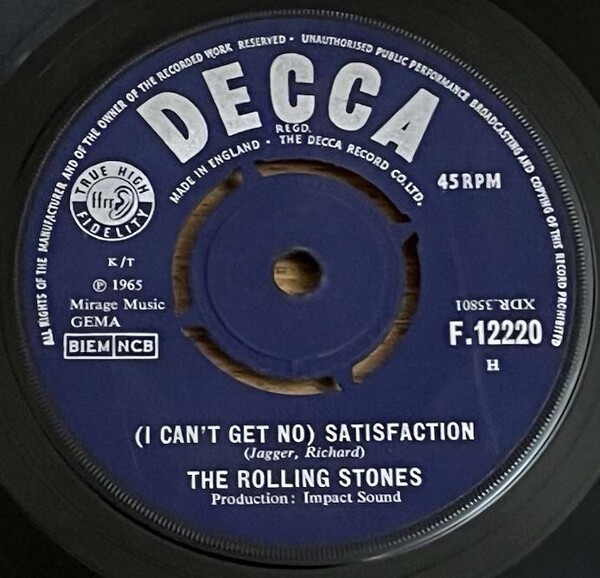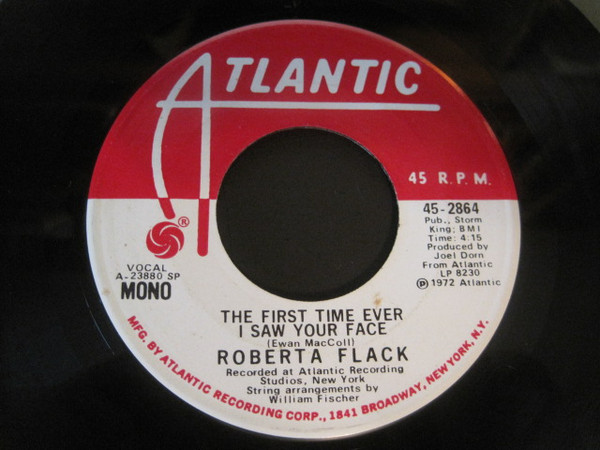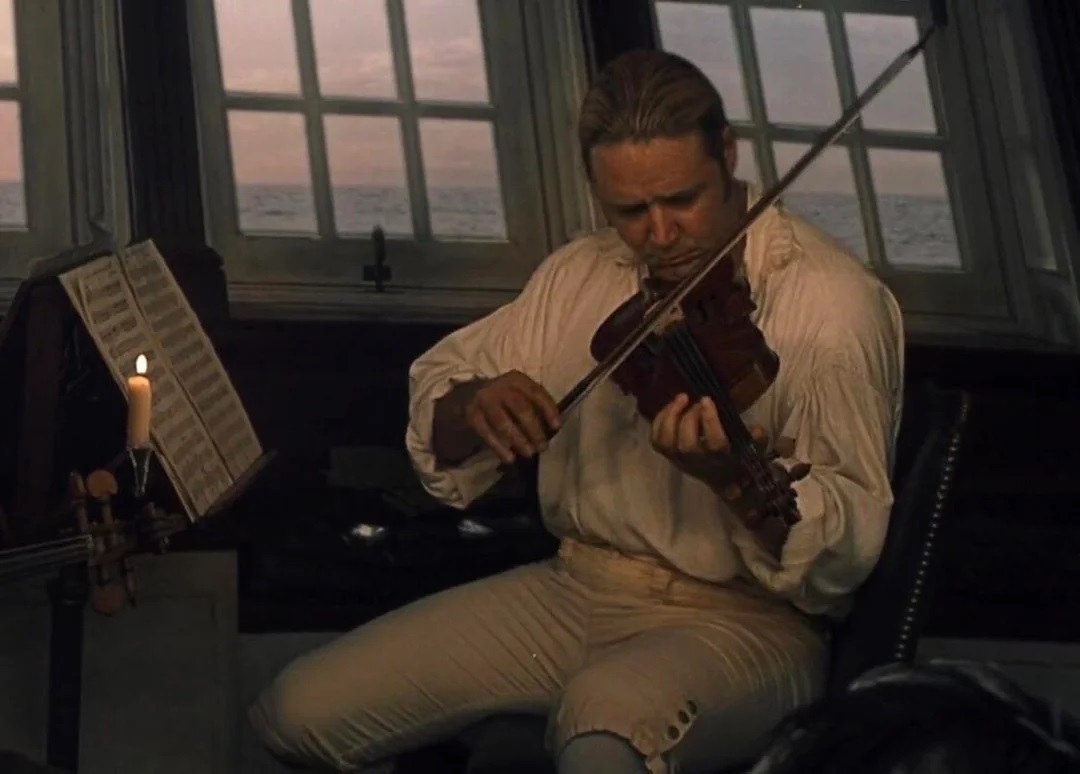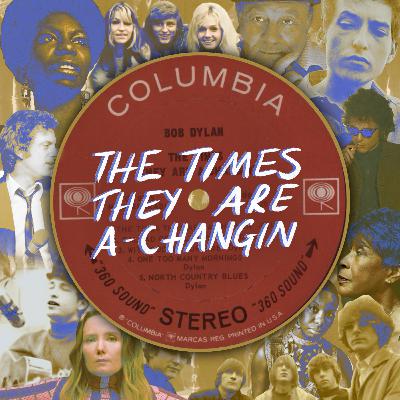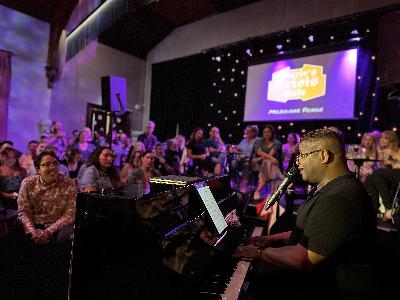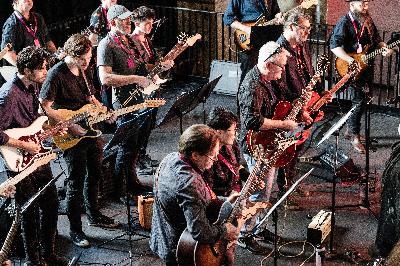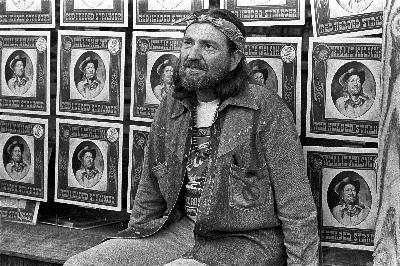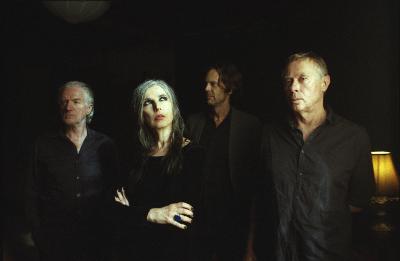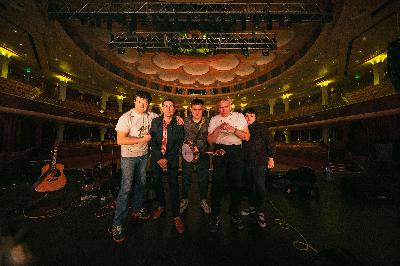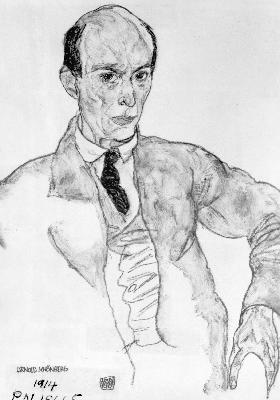Discover The Music Show
The Music Show

593 Episodes
Reverse
All kinds of music and all kinds of musicians in conversation with Andrew Ford.
Inni-K, the alias of singer songwriter Eithne Ní Chatháin, blends Ireland's rich music traditions with her own playful compositional voice. Her new album Still A Day deviates from the traditional material she's focused on in the past, and these original songs are sung in English and Gaelic, with her voice and fiddle at the centre.Touring relentlessly and releasing music since the early 1980s, Joe Camilleri and The Black Sorrows are taking stock with a new album of ‘quintessential songs’ that celebrate their four decade contribution to Australian music. Part of the band’s success is down to embracing eclectic musical styles. You’ll find jazz, blues, rock, zydeco and pop on this album. The Sorrows have also welcomed a rotating cast of musicians over the years—people like Vika & Linda Bull, Paul Grabowsky, Michael Barker and George Butrumlis. Joe speaks to Andrew about longevity, singing with his saxophone, and how he never knows when something’s going to be a hit.Plus, music from the border of Iran and Afghanistan, from Badieh. They'll be on The Music Show next week.
The First Time Ever I Saw Your Face was made famous by the version Roberta Flack recorded for her 1969 album First Take, which was then used in Clint Eastwood's 1971 film Play Misty for Me. But it started life as a relatively simple folksong British folk singer Ewan MacColl wrote for and delivered to American folk singer Peggy Seeger down a phone line at the start of the 1960s. From folksong to torch song to torture device (sorry, Barbra Streisand), it's a song that has robustly weathered many interpretations. Poet and folk artist Kate Fagan and soprano Rachel Mink of Luminescence Chamber Singers are our critics in the first episode of a new series of Cover Story.
Composer Christopher Gordon is being handed the Distinguished Services to the Australian Screen award at this year's Screen Music Awards. Responsible for big scores to films like Mao’s Last Dancer, Ladies In Black, and Master and Commander: The Far Side of the World, Christopher has also written for television, ballet and the concert hall. He tells Andrew about catching his first big break (a score for miniseries Moby Dick) and how he’s kept up such a varied composing and conducting career.Forming in Brisbane in 1978, The Apartments have been releasing music on-and-off for over 40 years, with singer songwriter Peter Milton Walsh the only constant member. The latest album spends a lot of time looking back, balancing joys and sorrows, and arrives like a declaration: That's What the Music is For.
Ahead of new episodes of Cover Story (dropping very soon!) we bring you one of our favourites from season one.Singer and rapper Ziggy Ramo and musician and broadcaster Alice Keath look at Bob Dylan’s The Times They Are A-Changin’ – a political anthem just vague enough to apply to the US civil rights movement, the Velvet Revolution, Perestroika, and in some cases seemingly nothing at all.
When was the last time you gathered around a piano to belt out showtunes with friends or strangers? Marie's Crisis Cafe is a beloved New York City sing-along piano bar that's been bringing musical theatre lovers together for decades. The bar is popping up in Melbourne and Sydney and we'll meet resident pianists Kenney Green-Tilford and Adam Michael Tilford who'll perform a couple of showtunes live.Fritz Hart (1874 - 1949) was an English composer, conductor and teacher (and critic, poet, novelist and painter), a friend of Gustav Holst and Ralph Vaughan Williams, who was active in Melbourne (and Hawaii) in the first part of the 20th century. He composed a great deal of music, including no fewer than nineteen operas, but is these days better known for his teaching work, his students including Peggy Glanville-Hicks, Margaret Sutherland, Linda Phillips and Esther Rofe. Hart's biographers, Peter Tregear and Anne-Marie Forbes, join Andy to discuss this flamboyant, not to say rakish, figure in Australian music.
Wardaman and Yanyuwa woman Dr Shellie Morris AO grew up speaking English in her adopted family, but has since gone on to learn over 20 First Nations languages. Her new album Singing For Our Little Ones is in Warumungu, and it's a collaboration with Elders in Tennant Creek as well as the local recording studio and a whole bunch of musicians. Shellie's cultural advocacy and leadership recently earned her a Red Ochre Award for Lifetime Achievement, and she's back on The Music Show to talk about why music is the perfect tool to preserve languages.Many bands include 2 or 3 guitars, but Tim Brady's latest project has one hundred of them. The Canadian composer and guitarist recently premiered 100 Guitars at Brisbane Festival, where local ensemble Topology was bolstered by 100 guitarists—a mix of professionals, casual players and complete newbies. Tim talks to Andrew Ford about the pulling off such an ambitious performance, the changing role of electric guitar in new classical music, and doing something a lot of composers are daunted by: writing for a string quartet.
Post-post-modern chanteuse Meow Meow returns to The Music Show to talk about The Red Shoes, the third show in her series of Hans Christian Anderson adaptations. She goes into both the music and the research behind the show, including the revelation of a Danish ballet dancer whose "feet ran away with her", that may have inspired the tale. Alto saxophonist and composer Tessie Overmyer has released her debut album as bandleader, Tidelands. She explains to Andrew Ford why she composes music on guitar, the headspace you need to be in to improvise, and how The Goodies influenced this record. The Red Shoes is at Belvoir St Theatre in Sydney 4 Oct - 9 Nov, and at Malthouse Theatre in Melbourne 19 Nov - 6 DecTessie Overmyer's Tidelands is out now via ABC Jazz.
Willie Nelson first encountered the song Red Headed Stranger in the 1950s, working as a DJ at radio station KCNC in Fort Worth TX. It was a jaunty number, sung by Arthur “Guitar Boogie” Smith and His Cracker-Jacks, about a less-than-jaunty subject. The stranger of the title rides into town on “a raging black stallion” leading a second horse, a bay, that had belonged to his dead wife. He meets a woman who tries to steal the bay and shoots her. Willie not only played the song on his radio show but sang it himself. Eventually, he made an album to provide the backstory the song so desperately needed. Red Headed Stranger came out in 1975 and marked a new beginning for Nelson. On the album’s fiftieth birthday, country singer songwriters Tami Neilson and Henry Wagons join Andy to listen to, and talk about, why it's one of the greatest country albums ever made.
Neko Case's dazzling voice and kaleidoscopic band sound have developed slowly and assuredly over her 30 year recording career in what she calls "country noir", and her latest album Neon Grey Midnight Green is the latest instalment. She joins Andy to talk about the way her voice has changed over the years, her adoration of unconventional guitars, and the surprising literary inspirations behind her songwriting.The legendary upright bass player Danny Thompson has died at the age of 86. His music spanned folk, rock, jazz and blues and over his career he played with the likes of John Martyn, Nick Drake, Donovan, Kate Bush, Peter Gabriel and Richard Thompson (no relation). He was also a founding member of the band Pentangle, which is one of the subjects up for discussion in an archive interview from The Music Show in 2007.
Laura Bowler is often described as a "composer, performer, and prevocatrice". That may be the perfect combination for "deconstructing" Schoenberg's Pierrot Lunaire, which she's done and is getting its Australian premiere for Ensemble Offspring's 30th birthday concert. She joins Andy to talk about her relationship to Schoenberg's original work, the "extractive" process of wrapping your identity up in your art, and what live electronics bring to her music.The Big Idea is a monodrama - a sort of micro-opera for one voice - and it's the work of composer Matthew Shlomowitz and philosopher/librettist Vid Simoniti, and it's being performed by Rubiks Collective with singer Lotte Betts-Dean for Rubiks' 10th birthday. It's a story about a character on the brink: "a new idea blossoms, a life unravels, and we witness the tantalising chaos in between". The chaos is rendered in a shapeshifting ensemble that switches from samba, to Scandi-jazz, to Romanticism, to old school Broadway. Matthew and Vid join Andy to talk about how philosophy and composition meet in their collaboration. And Neko Case makes the case for her top book of the 21st Century. Vote for yours in Radio National's Top 100 Books now.
Go Back and Fetch It: Recovering Early Black music in the Americas for Fiddle and Banjo is a new book, a collaboration between Carolina Chocolate Drops founder Rhiannon Giddens and music writer Kristina Gaddy. They both join Andy to talk about what they've uncovered. Ensemble Kaboul is an Afghan ensemble based in Europe, and they're headed to Australia to collaborate with Van Diemen's Band on Where Everything Is Music: the Persian music of Afghanistan meeting the baroque. Rubab player Khaled Arman sketches out the region and its musical history and tabla player Siar Hashimi talks about this music as the food of the soul, coming from a nation under a regime that has banned all music.
Adalita and Marty Brown join Andy to talk about their new supergroup with Mick Harvey and Mick Taylor - they're called Bleak Squad and with a history of playing with Magic Dirt, the Bad Seeds, Dirty Three as well as with artists like PJ Harvey and Clare Bowditch, it's a quartet with some serious power. A moody, charismatic guitar band - the likes of which you don't hear that much these days - Adalita and Marty join Andy to report that the kids are, in fact, listening to guitars, and explain how four big personalities have unified so well. American percussionist Steven Schick returns to The Music Show, and to Australia: he's here to play a series of concerts and masterclasses at the Australian National Academy of Music. He's been playing professionally for about fifty years and he talks to Andy about the repertoire that he's helped expand in that time, and his second career as a conductor.Plus Laura Bowler gives us her pick for the Top 100 Books of the 21st Century. Vote for yours at the Radio National website!Bleak Squad are playing in Sydney, Queenstown and Melbourne in October. Find the details on their website. Their debut album Strange Love is out now. Music in this program:Title: RebondsArtist: Steven SchickComposer: Iannis XenakisAlbum: Percussion WorksLabel: ModeTitle: Lost My HeadArtist: Bleak SquadComposer: AdalitaAlbum: Strange LoveLabel: Poison City RecordsTitle: Blue SignsArtist: Bleak SquadComposer: Adalita (lyrics), Marty Brown (music)Album: Strange LoveLabel: Poison City RecordsTitle: Safe as HousesArtist: Bleak SquadComposer: AdalitaAlbum: Strange LoveLabel: Poison City RecordsTitle: Bone AlphabetArtist: Steven SchickComposer: Brian FerneyhoughAlbum: Born To Be WildLabel: Newport ClassicTitle: AequilibriaArtist: Steven Schick, International Contemporary EnsembleComposer: Anna ThorvaldsdottirAlbum: AequaLabel: Sono LuminusThe Music Show is made on Gadigal and Gundungurra CountryTechnical production by Ann-Marie Debettencor
The Mary Wallopers are in Australia, far from their hometown of Dundalk in Ireland's County Louth. They're a raucous, political band with a folk/punk inheritance from bands like The Dubliners and the Pogues. Charles Hendy, who formed the band alongside his brother Andrew, is Andy's guest.We welcome Yorta Yorta/Yuin composer and soprano Deborah Cheetham Fraillon back to the music show to discuss the release of Eumeralla, A War Requiem for Peace on ABC Classic. This powerful requiem, sung in Gunditjmara dialects by Indigenous and non-Indigenous choirs and soloists, commemorates the brutal Eumeralla War of the late 19th century fought between Gunditjmara people and colonists in South Western Victoria. Deborah is also singing in Michael Tippett’s A Child of Our Time with Sydney Philharmonia Choirs at The Sydney Opera House on Saturday September 13.
Carolyn Sampson is an English soprano who began her career in early music (Bach and before), working with some of the world's best-known specialists in historically informed performance. These days, she is just as likely to be heard singing Mahler. She talks about her developing career in a conversation recorded at this year's Australian Festival of Chamber Music. Also from the Festival, the fearless Australian-born, London-based pianist Joseph Havlat. He enjoys the challenge of new music and the more virtuosic the better. But he is also a composer, his music defying categorisation, veering between the deeply serious and hilariously funny - sometimes in the same piece. He talks to Andrew Ford about his playing and composing, and how they intersect.
Was your music teacher anything like the ones in the movies? Three academics - Hugh Gundlach and Rhiannon Simpson from Melbourne University and Katrina Rivera from ANU - join Andy to interrogate cinematic depictions of music teachers. From the dictators (Whiplash) to the heroes (Mr Holland's Opus) and the chaos engines in between (School of Rock), what do our fictional music teachers tell us about music education in the real world? And Freya Berkhout is an Australian film composer who made a leap of faith by moving to Hollywood two years ago, and she hasn’t looked back. Freya joins Andrew Ford to talk about surviving in the film industry 'machine', her approach to scoring comedy and horror, and the prevalent use of her voice in her soundtracks. Freya scored the documentary Surviving Malka Leifer, which just premiered at Melbourne International Film Festival.Surviving Malka Leifer is screening in the Jewish International Film Festival on September 18th (Sydney), and September 21st (Melbourne), and will be available to stream on Stan from October 5th.
Four pieces of music written in the years after World War II – Strauss’s Metamorphosen, Schoenberg’s A Survivor from Warsaw, Britten’s War Requiem, and Shostakovich’s 13th Symphony, ‘Babi Yar’ – paint a complicated picture of how European composers memorialised war in Jeremy Eichler’s new book Time’s Echo. Jeremy joins Andy on the show to trace the connections and conflicts in the ways that a German, a Jewish Austrian in exile, an Englishman, and a Russian looked back at the war(s) and the Holocaust.This program was first broadcast in April 2024.
As a child prodigy, pianist Ana-Maria Vera made her concerto debut when she was nine, going on to record and perform with some of the world’s great orchestras (Philadelphia, Cleveland, London Philharmonic, Baltimore Symphony). In a conversation recorded at the Australian Festival of Chamber Music, Ana-Maria tells Andrew Ford about spending her formative years on the stage, her significant musical relationships with violinist Ivry Gitlis and teacher Leon Fleisher, and how her organisation Bolivia Clásica brings concerts, festivals and workshops to places like the mountains of La Paz and the Uyuni salt desert. Guinea-Bissau is a small country with rich musical traditions. New documentary film Nteregu surveys the music of the country from pre-colonial and colonial times to present. Instruments like the kora, balafon (gourd resonated xylophone) and Tina (floating gourd percussion played by women) are featured, as well as the griots and musicians who pass on this music to the next generations. The film also looks to a hopeful future where the music is recognised for its cultural heritage and reaches far beyond West Africa. Andrew speaks to Manuel Loureiro, one of the film’s directors.
On the 25th of August, 1975, Bruce Springsteen released Born to Run, the "dividing line" of his career. Starting with the title track, written on the edge of his bed in a rented cottage in New Jersey, Born to Run signalled the arrival of Springsteen, and the E Street Band. A child of the Kennedy, King, and Malcolm X assassinations, Springsteen transformed classic rock and roll images - the road, the car, the girl - into something potent and virile that reflected the sense of dread in the air. Musician and academic Toby Martin and writer and critic Kerryn Goldsworthy join Andy to trace the arc of Born to Run's story through one violent night in the city, and the root system of its influences, from Roy Orbison, to the Bible, and West Side Story.
The harpist Marshall McGuire is Chair of the Australian Music Centre. He made his name playing impossibly virtuosic music by modern composers, often pieces written specifically for him. He has worked with the ELISION Ensemble for 38 of the ensemble’s 39 years, and for most of the last decade was Director of Programming at the Melbourne Recital Centre. Marshall joins Andy in the studio to talk about the harp, working with composers and the future of artistic leadership.For a long time, Molly Tuttle’s name has been synonymous with bluegrass music in the US. She was the first woman to win the prestigious International Bluegrass Music Award’s Guitar Player of the Year, and she’s taken home two Best Bluegrass Album awards at the GRAMMYs (in 2023 and 2024). But she has more to prove. Her brand new album So Long Little Miss Sunshine covers varied musical ground, and sees her bringing those bluegrass traditions into pop. She chats to Andrew Ford about her approach to guitar (flatpicking, clawhammer, fingerstyle), writing a murder ballad, and what it was like growing up in a family band.


